Explore our Hall of Fame and relive moments from the last 20 years when foresight became fact. From bold predictions to world-changing launches, these visionary voices have turned the MWC stage into a launchpad for the future.
20 years of iconic thought leadership
What happens when the titans of our industry take to the stage at MWC?
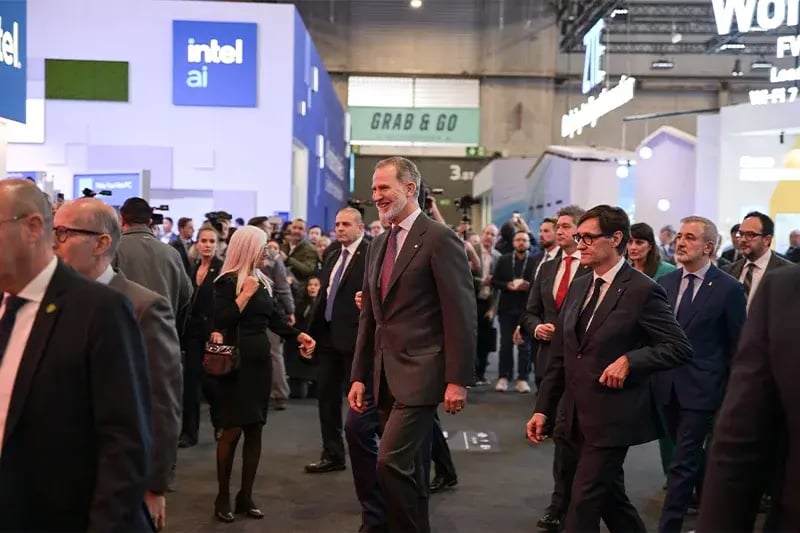
2006 King Felipe VI of Spain
King Felipe VI has attended MWC since its debut in Barcelona in 2006—first as Crown Prince and later as King—to champion Spain’s technological progress. Recent visits have included inaugurating the event, exploring Telefónica’s 5G and Open Gateway innovations, and viewing Huawei’s foldable phone – highlighting Spain’s focus on digital innovation.
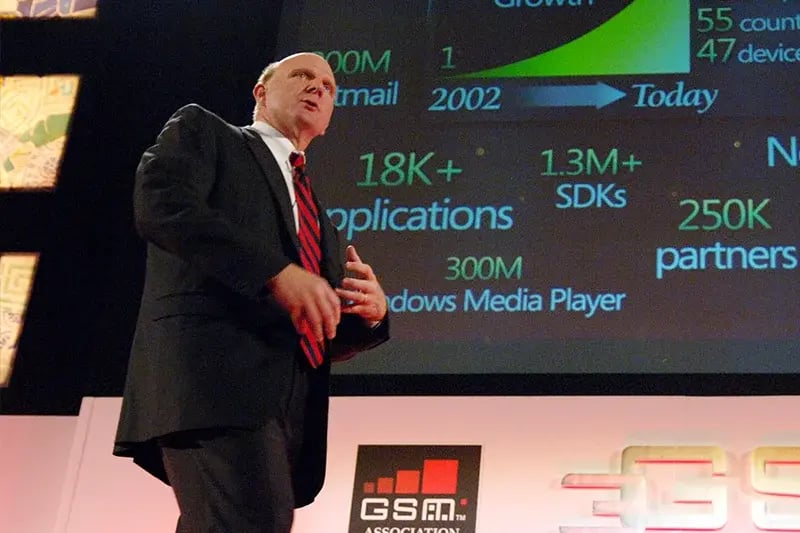
2006 Steve Ballmer
On stage in 2006, Ballmer announced the Microsoft® Office Communicator Mobile, which provided workers with the advantages of enterprise-grade, real-time collaboration capabilities for their mobile solutions. He called smartphones a new “growth engine for the wireless industry.”
He also showed off a live TV service introduced by Virgin Mobile and BT Movio powered by Microsoft for Windows Mobile®-based smartphones. Joining him on stage via a video message, Sir Richard Branson announced that Virgin Mobile would be the first mobile operator to sign up for the TV service, making Virgin Mobile customers the first in Europe to have live digital TV on their mobile phones.
Branson was correct when he predicted, “...being able to watch your favourite programmes on your mobile while on the go will soon be as natural as watching TV in your living room today.”

2007 Sir Tim Berners-Lee Director, World Wide Web Consortium (W3C)
In his keynote speech, Sir Tim Berners-Lee pleaded for open, royalty-free mobile standards and warned that ‘walled gardens’ would kill innovation.
“What I find exciting about being here now is that we are at an epic point in telecommunications history, when the mobile platforms discussed here, and the internet platforms which have enabled such spectacular growth and innovation, are poised, if we manage this well, to merge.”
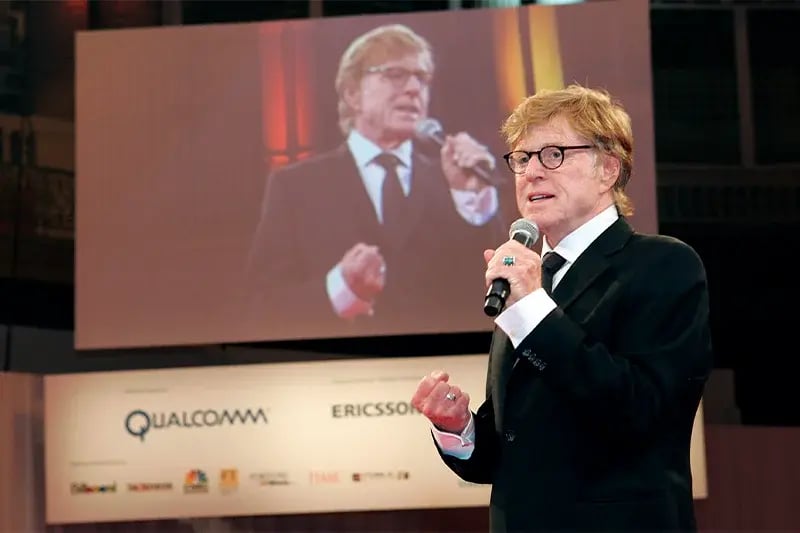
2008 Robert Redford Actor and director
Robert Redford was invited to MWC (still called Mobile World Congress at that time), where, according to Crónica Global, he “managed to outshine even the world’s biggest tech event".
During his visit, he spoke at the GLOMOs about how mobile could bring in a new era of short form content and signed an agreement between the GSMA and the Sundance Festival to promote short films designed for mobile devices, which led to the creation of the Mofilm platform.
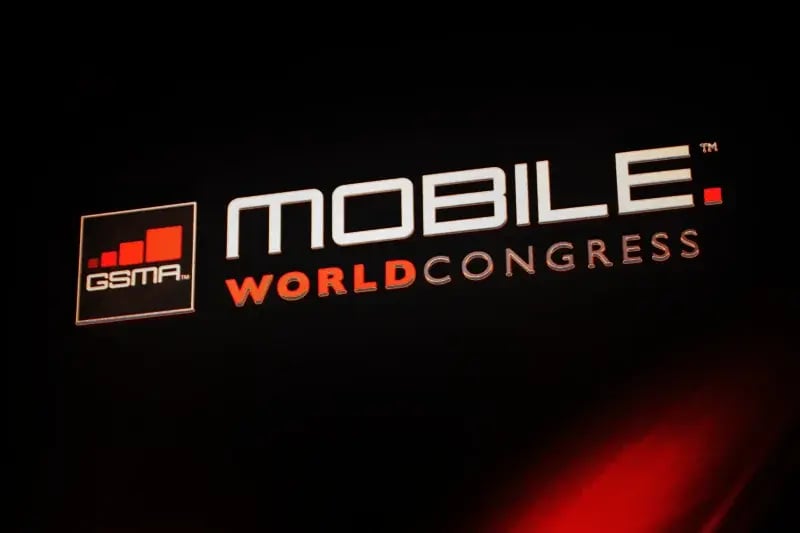
2008 Viviane Reding European Commissioner for Telecoms
Politics and business merged on stage when Viviane Reding, railing against the costs of mobile data and text messaging abroad, warned she would slash EU roaming SMS prices if operators failed to act.
"Sending a text message or downloading data in another country should not be substantially more expensive than it is at home," she said.
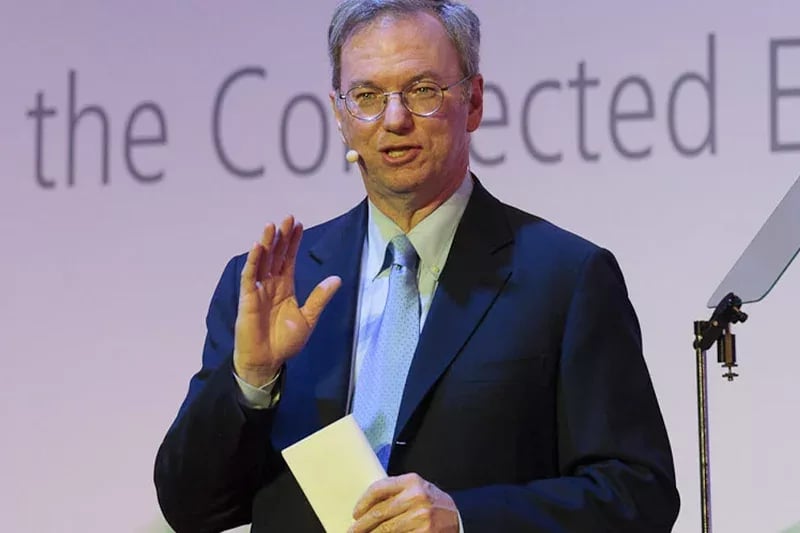
2011 Eric Schmidt Executive Chairman, Google
In his keynote, Google's Eric Schmidt outlined why he believed the rollout of LTE networks and new cloud-based services would mark the start of a new era for mobile innovation. He also predicted everyone would carry “a super-computer in your pocket” and demoed Chrome for Android.
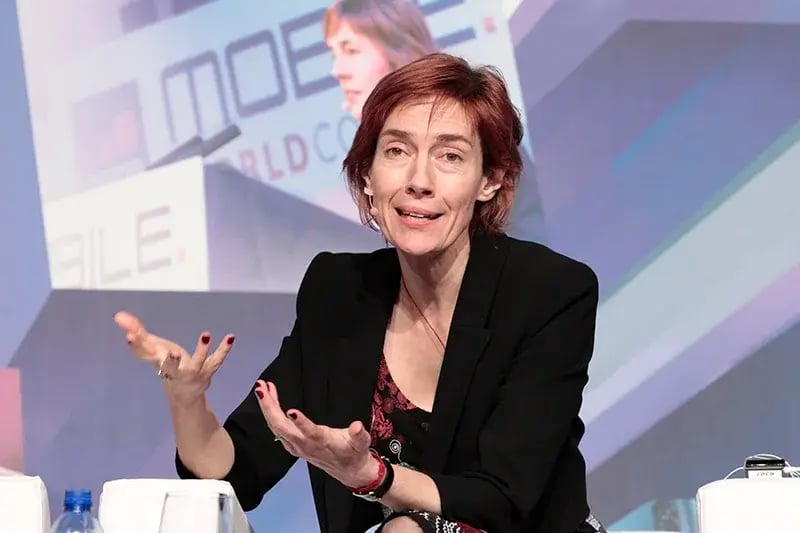
2012 Anne Bouverot Former Director-General, GSMA
The GSMA’s DG took to the stage in 2012 to encourage MNOs to use Rich Communications: “There is clear consumer demand for enriched messaging and voice services, and Rich Communications provides mobile network operators with solutions to address these consumer needs, as well as paving the way for future, innovative IP-based voice and messaging services.”
The GSMA also launched a consumer-facing brand – joyn - available for operators to use and give one global ‘face’ to RCS services.
“joyn will act as a mark of assurance to customers that they will have simple and direct access to enriched voice and messaging services wherever they are and whatever network they are using,” continued Bouverot. “Our key message is, it’s just there, it just works.”
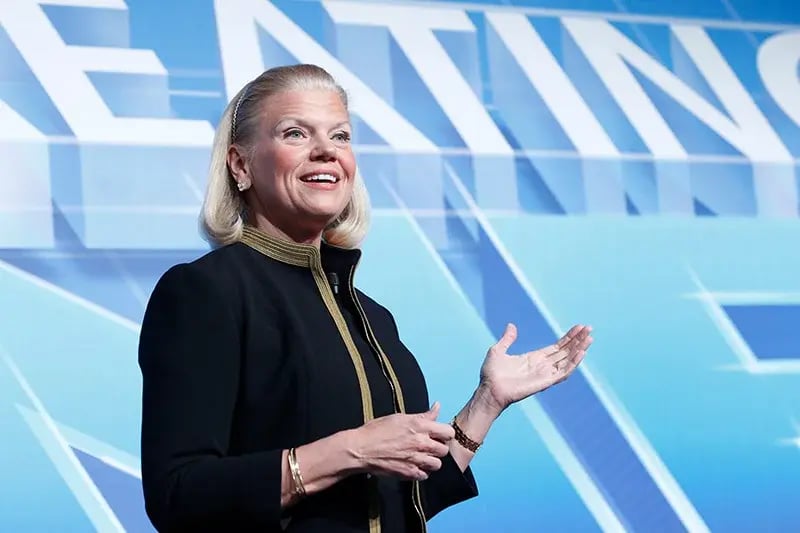
2014 Ginni Rometty Chairman, President & CEO, IBM
The first woman leader of IBM announced the IBM Watson Mobile Developer Challenge - a first of its kind global competition to promote the development of mobile consumer and business apps powered by Watson.
Developed as part of a strategy to help businesses of all sizes adopt mobile technology to better engage with customers and extend their services and solutions to new markets, the challenge called on developers to start building cognitive computing apps infused with Watson’s intelligence.
“We will look back on this time and look at data as a natural resource that powered the 21st century.”
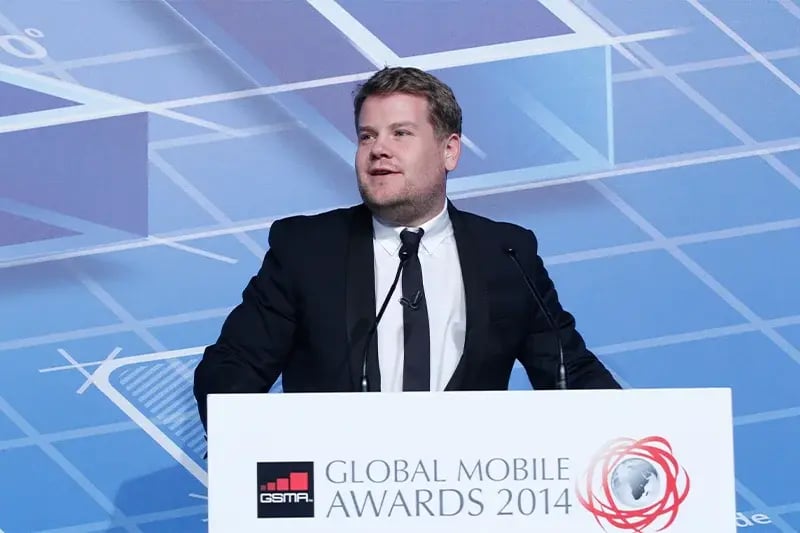
2014 James Corden Actor and TV Presenter
Alongside fronting the awards ceremony in 2014, Corden is credited with coming up with the GLOMOs moniker still used today.
Mark Smith, former marketing and communications director at the GSMA and the man who launched and managed the growth of the awards, said the name “came over dinner the night before the awards in Barcelona in 2014,” with the comedian suddenly announcing, “from here on we should call them the GLOMOs.”
Having also declared this idea for the suggested rename on stage, the new brand stuck and was formally adopted the following year.
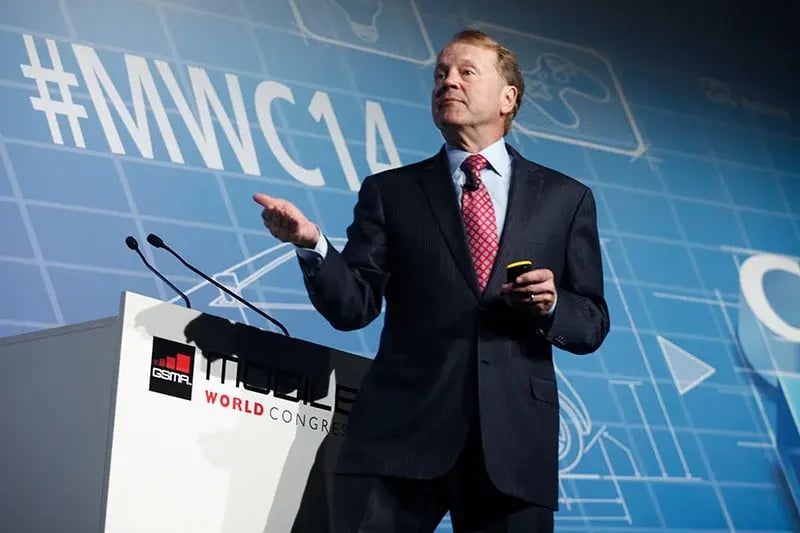
2014 John Chambers Chairman & CEO, Cisco
John Chambers was inspiring operators to monetise sensor data long before IoT was mainstream. In his keynote he touted the Internet of Everything as “10 times bigger than the internet itself.”
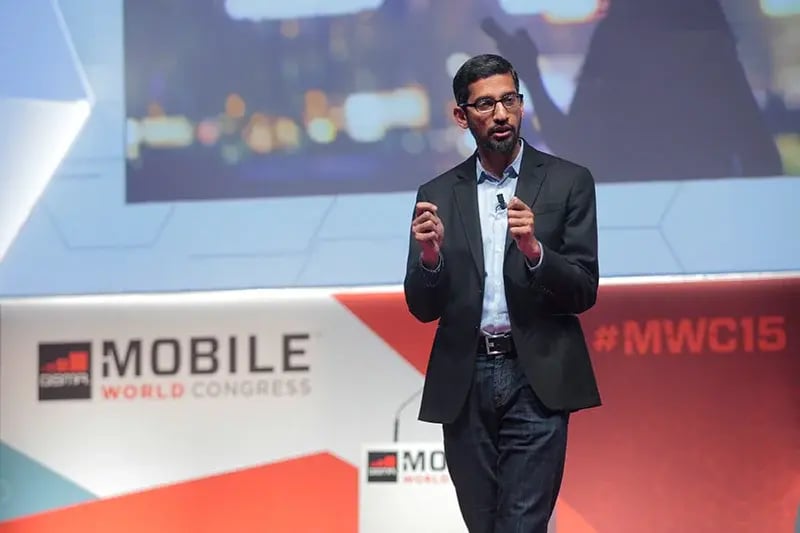
2015 Sundar Pichai SVP Android, Chrome & Apps, Google
Signalling the convergence of payments, cloud technology and connectivity, the Google SVP introduced Android Pay and confirmed Google’s MVNO ambition.
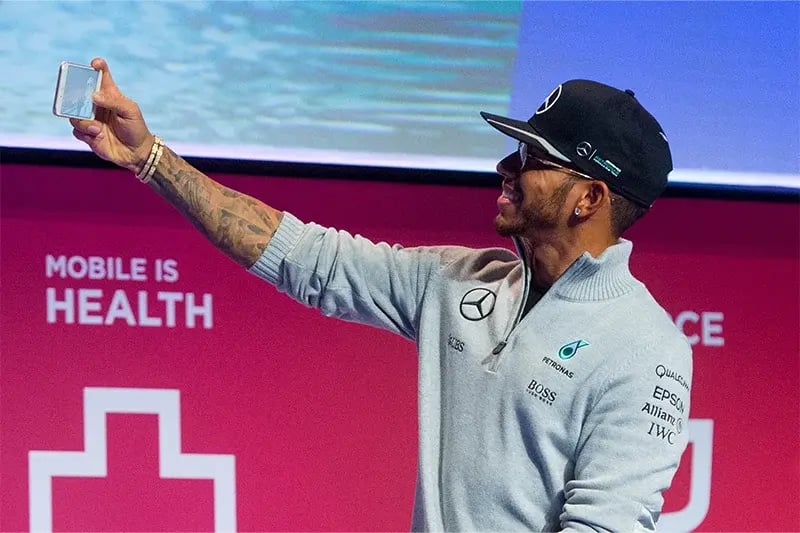
2016 Lewis Hamilton Formula 1 Racing Driver
Lewis Hamilton appeared on stage with the then-president of Qualcomm, Derek Aberle, and Toto Wolff and Paddy Lowe, from the Mercedes AMG Petronas F1 team. Talking about the future of connected technology in the car industry, Hamilton said,
“Technology allows me to know every detail during the race: tyre temperature, fuel level, lap times…”.
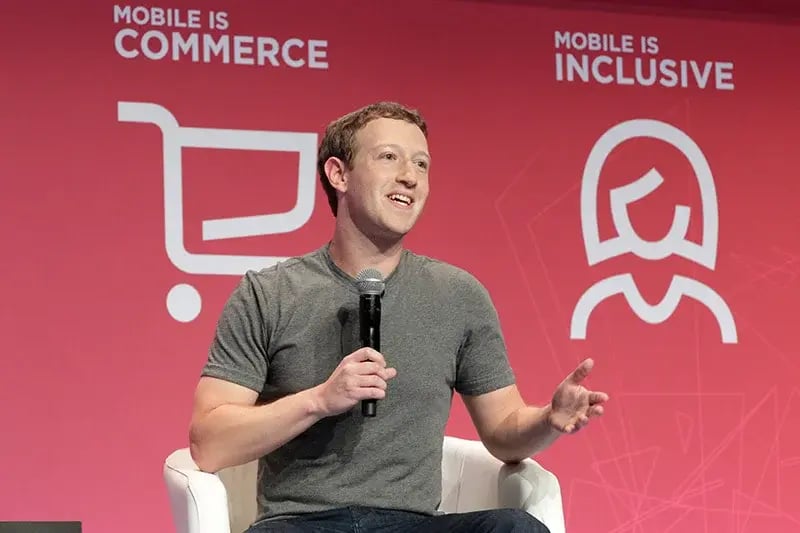
2016 Mark Zuckerberg CEO, Facebook (now Meta)
Back in 2016 Zuckerberg made a surprise appearance on stage with Samsung, focusing on Facebook's vision for the future of social interaction, particularly highlighting virtual reality and its potential to transform communication and social experiences.
“VR is the next platform where anyone can experience anything they want," he said. "It's going to change the way we live and work and communicate.”
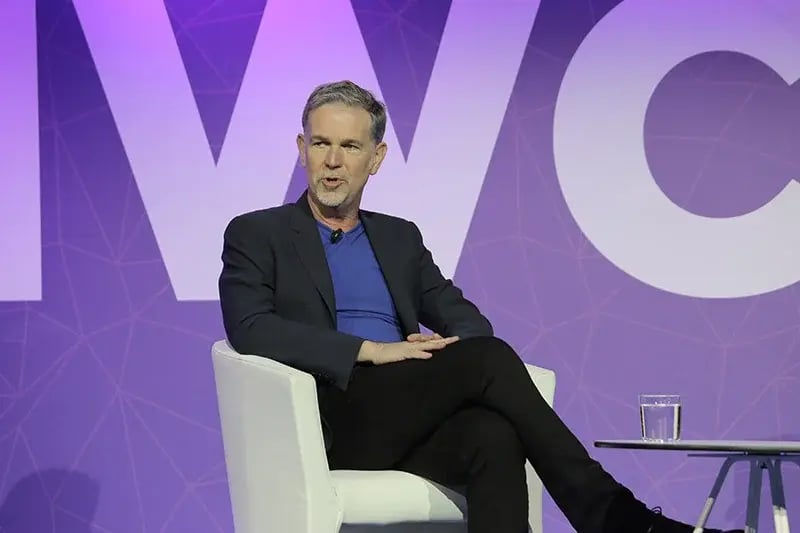
2017 Reed Hastings Co-Founder & CEO, Netflix
Proving his fortune-telling skills, Reed Hastings predicted that all video would be on the internet within the next ten years.
He also talked about improving the experience of watching film and TV on mobile, saying, “Some people in this room are old enough to remember dial-up internet, and now that seems like such a relic,” he said. “We want to do that to buffering across the world. We are going to see that someday the Netflix experience on mobile, laptop and TV is instant.”
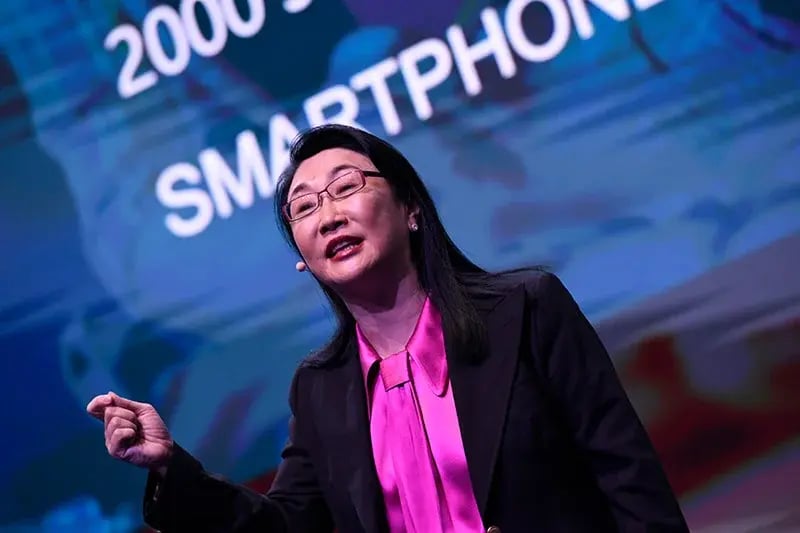
2018 Cher Wang Chairwoman & CEO, HTC
Talking about the spirit behind the new VIVE technology, Cher Wang explained the idea of “merging technology with humanity to unleash imagination”, before unveiling HTC’s Vive Reality vision and demonstrating VIVE Pro live.
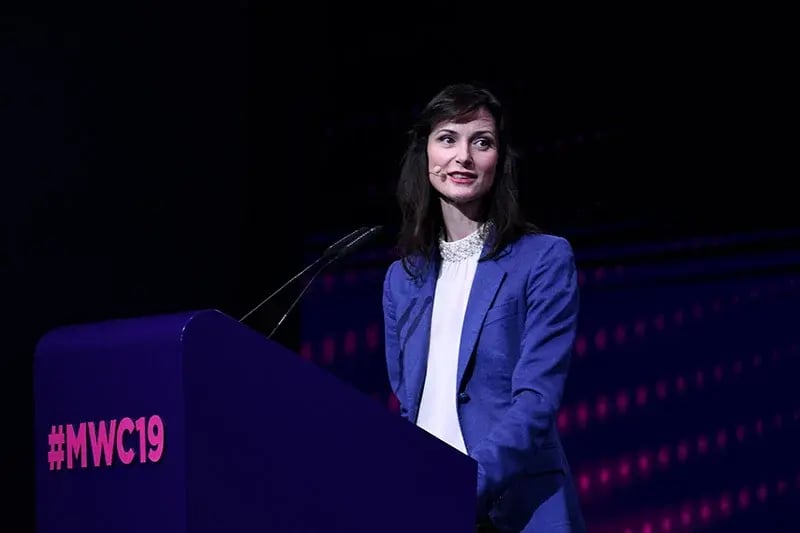
2019 Mariya Gabriel EU Commissioner for Digital Economy & Society
As part of her keynote speech, the EU Commissioner for Digital Economy and Society called for a common EU 5G-security stance, thus planting the seeds for today’s European AI and cyber-resilience legislation.
“I’m well aware of the unrest among all of you key actors in the telecommunications sector caused by the ongoing discussions on the cybersecurity of 5G,” Gabriel said. “Let me reassure you the European Commission (EC) takes your view very seriously, because you need to run these systems every day.”
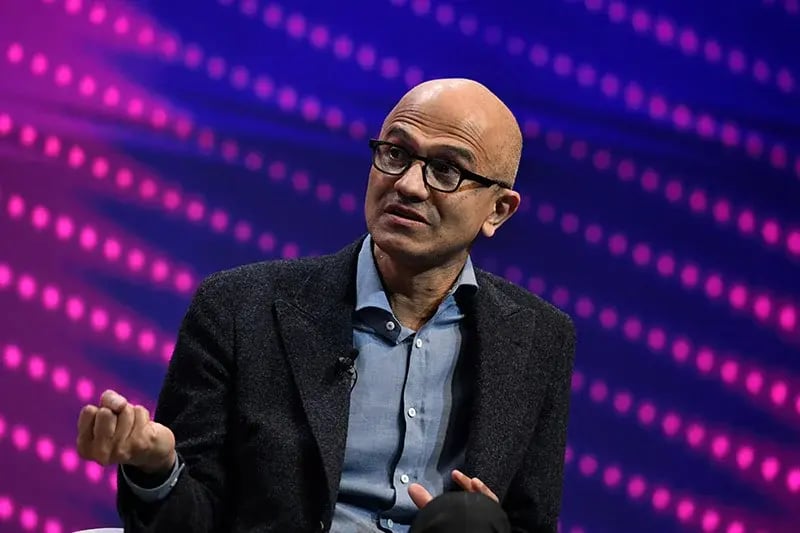
2019 Satya Nadella Chief Executive Officer, Microsoft
The Microsoft CEO revealed the HoloLens 2 and the company’s ‘intelligent cloud and intelligent edge’ roadmap.
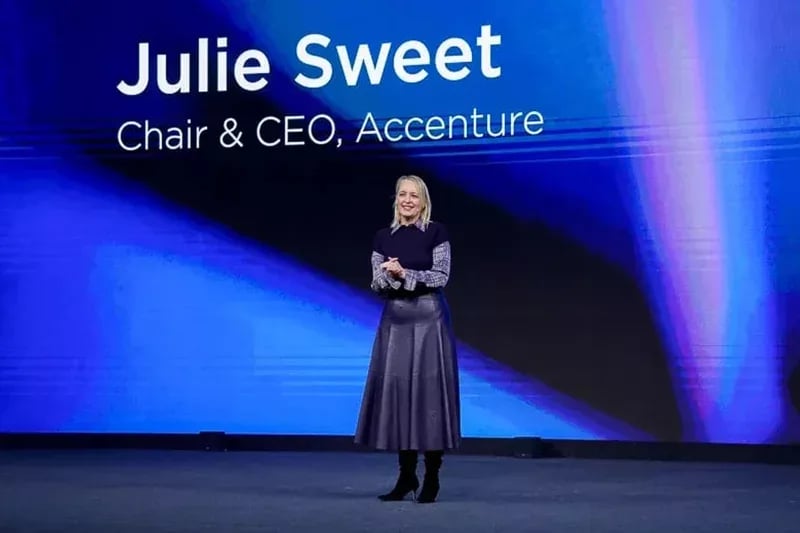
2021 Julie Sweet Chair & CEO, Accenture
In the Networks for Change keynote, Accenture’s Julie Sweet urged telcos to make connectivity the backbone of sustainable growth, placing ESG and digital inclusion firmly in the telco C-suite.
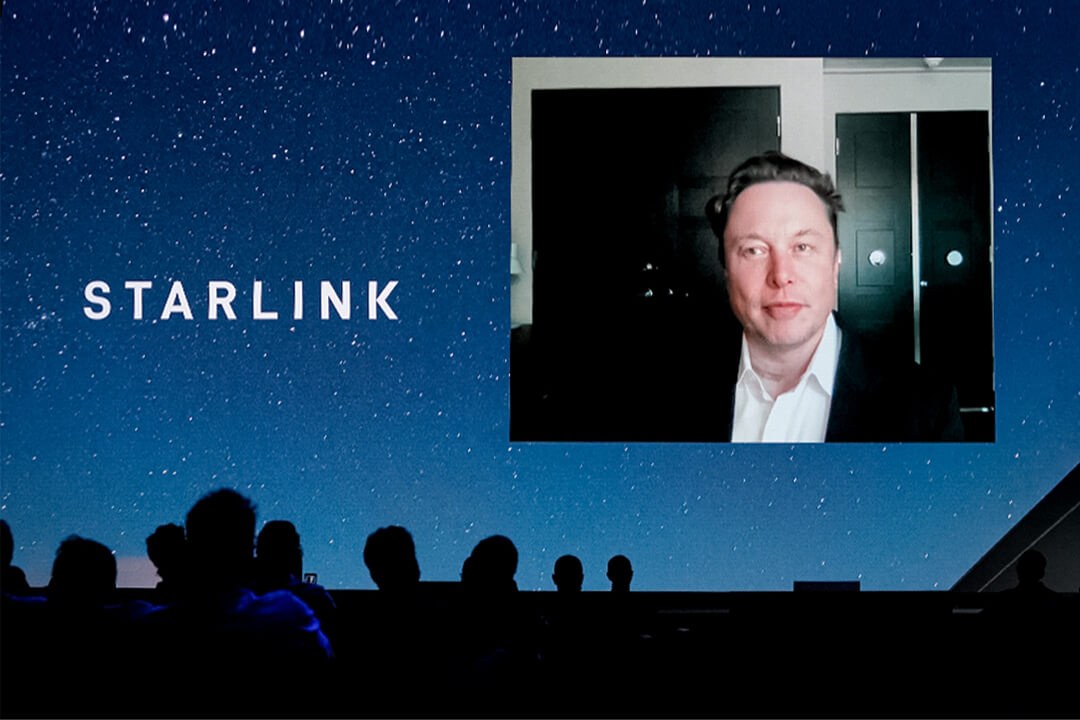
2021 Elon Musk Founder & CEO, SpaceX
The much-feted entrepreneur took to the stage, promising truly global broadband via Starlink and inviting operators to roam on it. He encouraged listeners to think of Starlink as “filling in the gaps between 5G and fibre.” His words raised the competitive stakes for terrestrial broadband overnight.
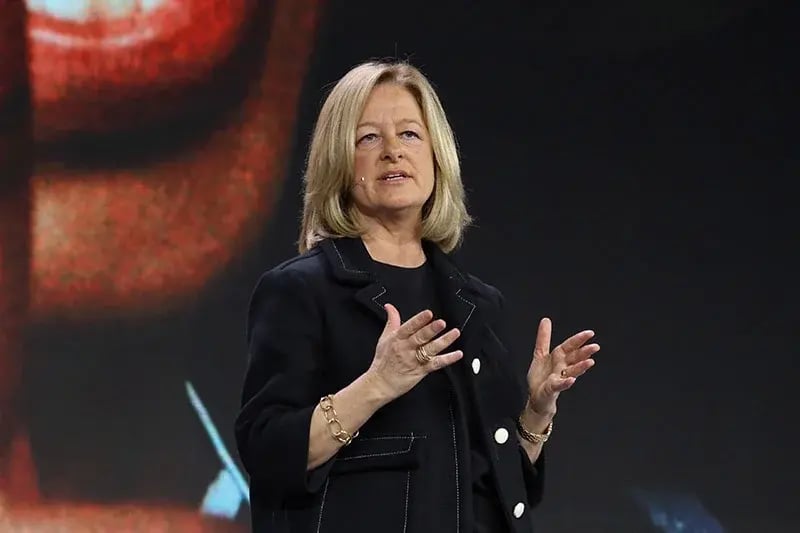
2022 Allison Kirkby President & CEO, Telia Company
Neatly fusing sustainability with the topic of commercial 5G strategy, the CEO introduced the ‘New Tech Order’ – tech humanised for climate-positive impact.
“Humanising technology into everyday life will open new avenues for industries and consumers to embrace change. A new future is on the horizon – one that’s different from what the world expected but led by technology.”
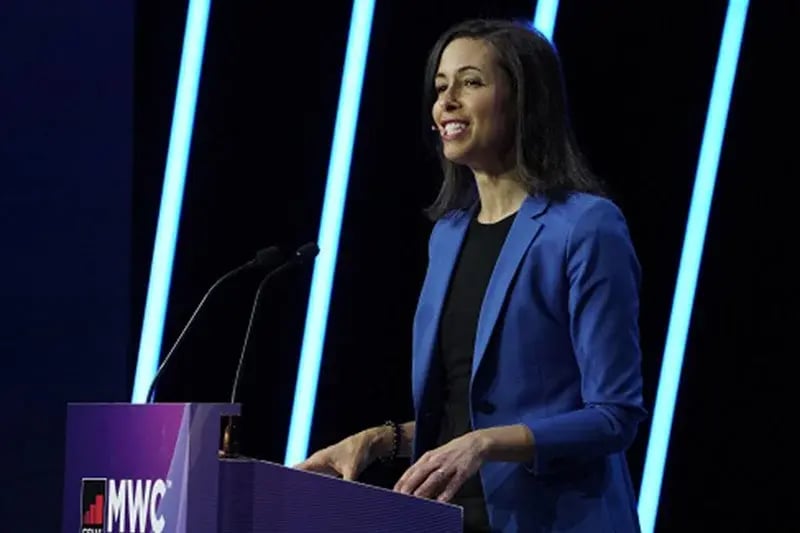
2022 Jessica Rosenworcel Chairwoman, US FCC
Underlining the power of a platform like the keynote stage at MWC, Federal Communications Commission Chairwoman Jessica Rosenworcel announced a July mid-band spectrum auction and called for 6G planning.
“I’m excited to announce that the US will hold another mid-band spectrum auction. This July we’ll kick off our auction of the 2.5GHz band. This is the single largest swathe of continuous mid-band spectrum we have below 3GHz. The airwaves available from this auction are going to help extend 5G services beyond our most populous cities,” Rosenworcel said.
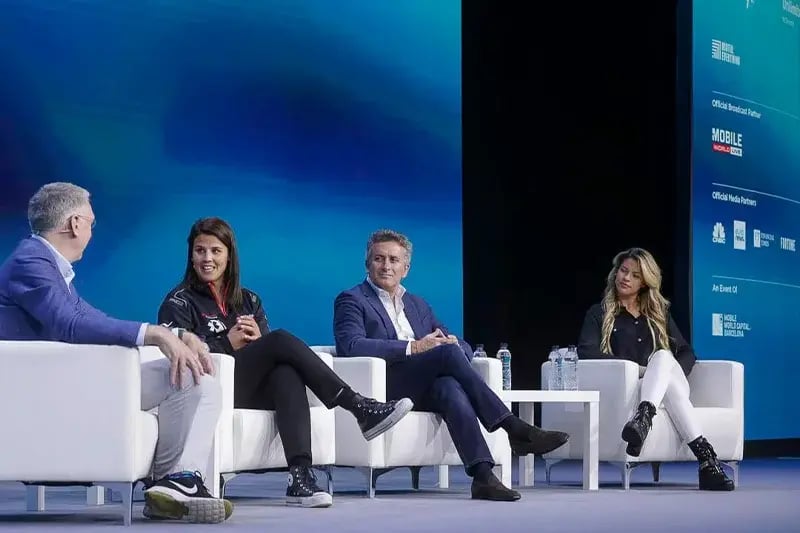
2023 Alejandro Agag Founder and CEO of Formula E
Alejandro Agag joined stars of the car racing circuit Christine Giampaoli Zonca and Laia Sanz in Keynote 3 - Changing Worlds.
The discussion involved renewable energy sources, with Agag framing electric racing series like Formula E as a “laboratory” for developing clean technologies that can be applied to everyday vehicles.
Watch highlights from Keynote 3 - Changing Worlds.
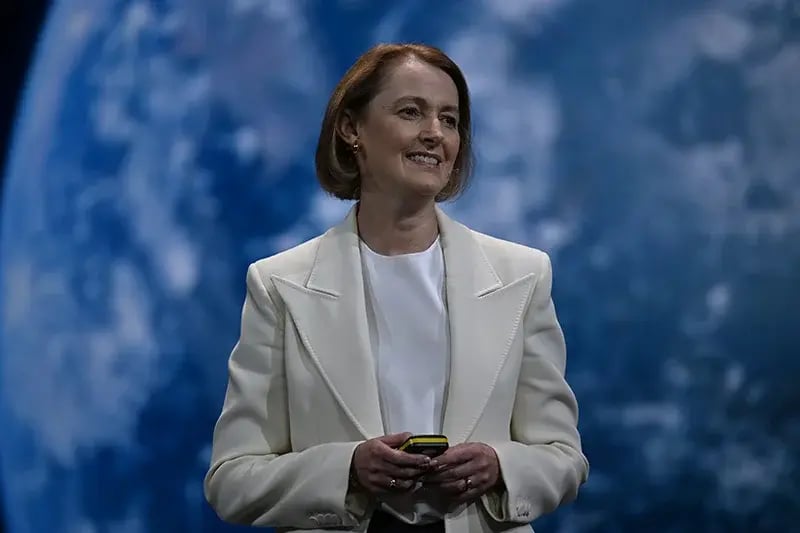
2023 Vicki Brady Chief Executive Officer, Telstra
In her keynote, the CEO of Telstra discussed the changing role of the operator from network owner to “ecosystem builder” that brings together technologies such as 5G, AI, automation, edge computing and “an explosion of applications”. She also warned that if operators don’t change, they run the risk that the “value created over our networks gets captured by others.”
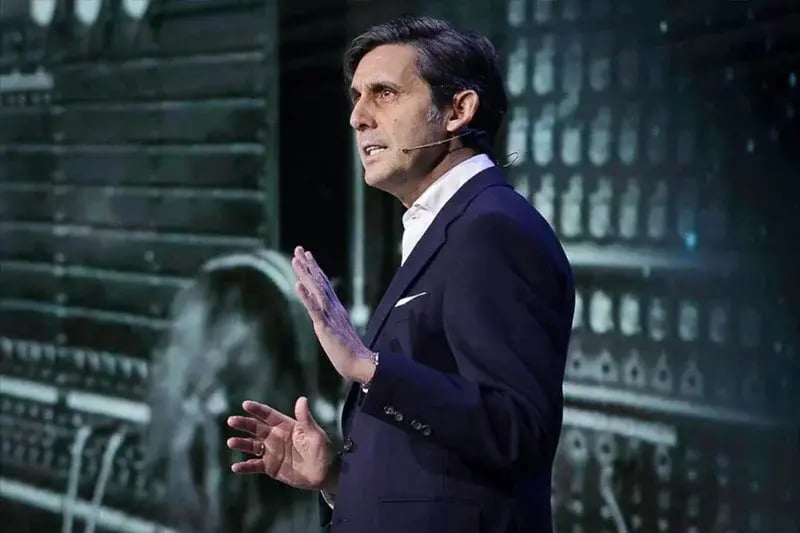
2023 José María Álvarez-Pallete Former Chairman & CEO, Telefónica / Former Chair, GSMA
The former chairman of Telefónica launched GSMA Open Gateway – a global framework of common network APIs that simplifies access to mobile operator networks.
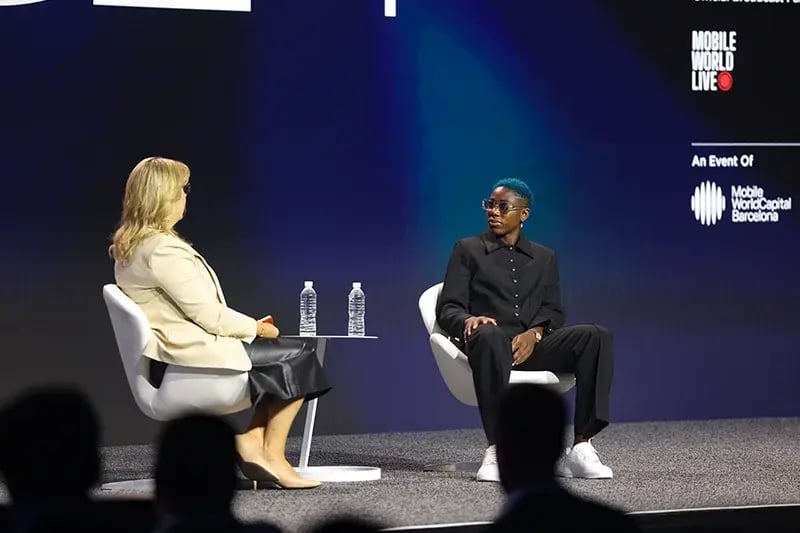
2024 Asisat Oshoala Nigerian Footballer
Oshoala, capped 61 times by Nigeria and founder of the Asisat Oshoala Foundation in Lagos, used MWC24 Barcelona to draw attention to the Usage Gap, an issue that affects 3 billion people worldwide and is especially prevalent in Sub-Saharan Africa, in her role as the GSMA’s ambassador for the Breaking Barriers campaign.
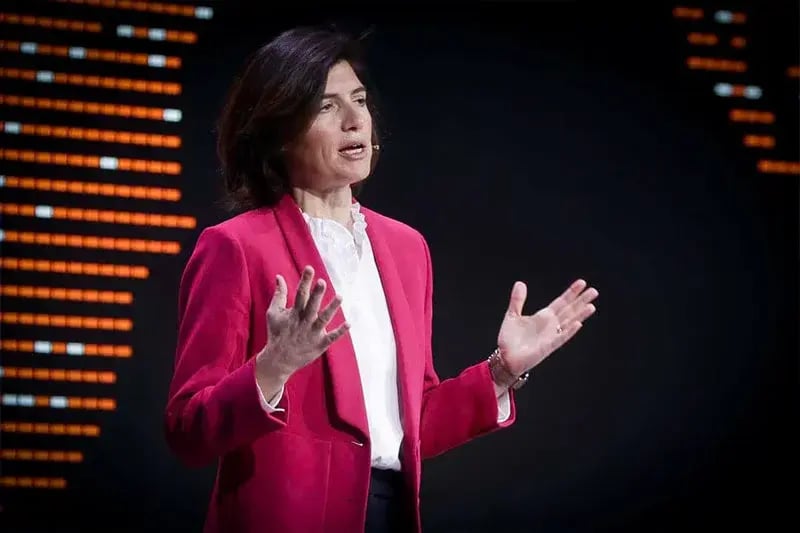
2024 Christel Heydemann Chief Executive Officer, Orange
In a keynote entitled Driving Europe’s Digital Future, Christel Heydemann championed operator collaboration on GSMA Open Gateway and spoke to the need for more investment.
“More investment creates capacity, scale, innovation, and cheaper prices. This creates a virtuous circle. We need to change the market structure where more investment is seen as bad. We help the ecosystem by working with small companies, startups, European companies, and tech giants. We don't want to build borders around Europe, but we need a European ecosystem that benefits from more investment.”
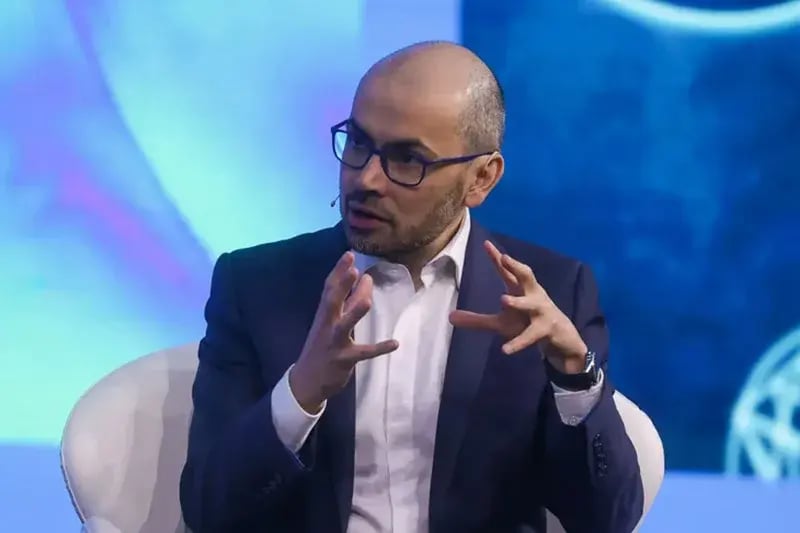
2024 Demis Hassabis Co-Founder & CEO, Google DeepMind
At MWC24 Barcelona, Hassabis joined Steven Levy, tech industry author, on the keynote mainstage to discuss how AI can continue to drive human progress. He called out DeepMind’s achievements across various domains, and the latest innovations, including Gemini, Google DeepMind’s most advanced AI model to date. He also addressed the need for responsible deployment of AI, calling for more governance and safeguards.
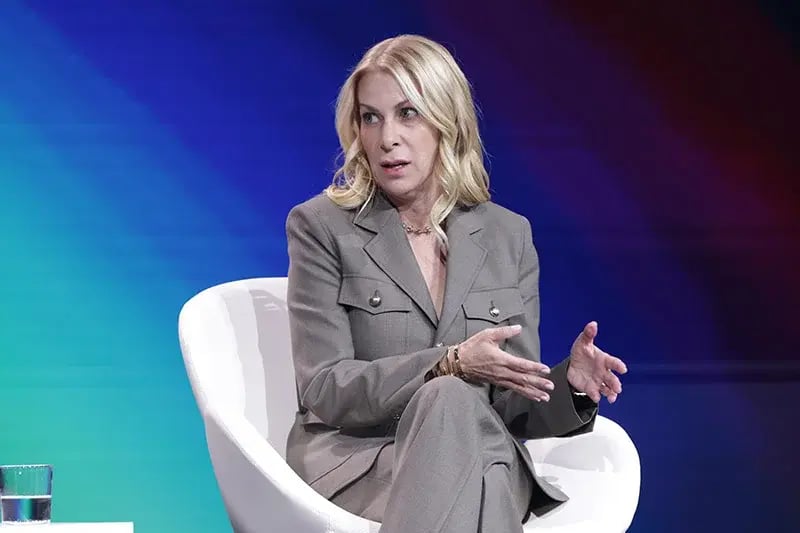
2025 Jessica Sibley Chief Executive Officer, TIME
In a panel conversation about the shifting sands of media, Jessica Sibley explored the challenges and advantages of integrating AI into newsrooms.
Watch Jessica Sibley discussing AI innovation here.
“We had three options with AI: litigate, negotiate, or do nothing. We weren't going to do nothing. We didn't want to litigate, so we've negotiated. What does that mean? We have lots of partnerships with many different AI companies for monetisation purposes. We're using all the tools and technologies to be more efficient and to compete on a global basis.”
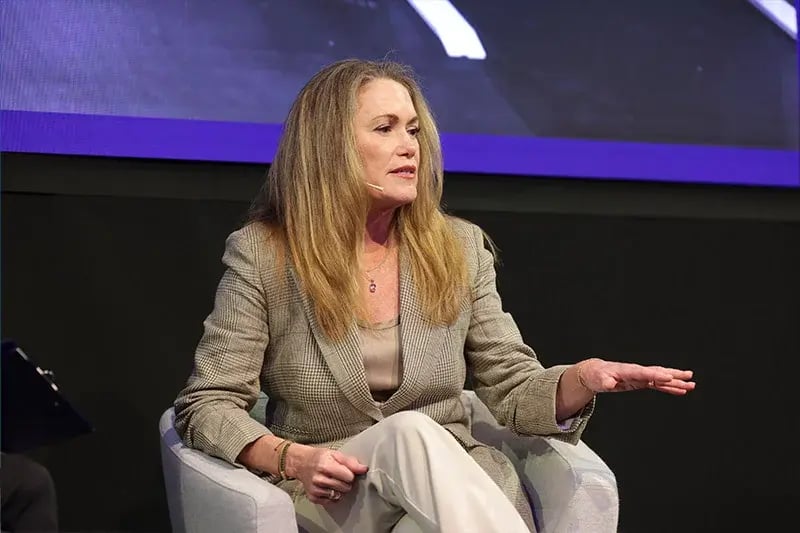
2025 Peggy Johnson Chief Executive Officer, Agility Robotics
Peggy Johnson of Agility Robotics brought a helper on stage for her keynote session. Digit, the company’s cutting-edge bipedal robot, made a surprise appearance and demoed how humanoid Robots-as-a-Service (RaaS) are already transforming warehouse operations, driving efficiency and setting the stage for the next era of automation.
Watch Peggy Johnson in keynote 7.
“Safety is the number one challenge right now for humanoid robotics. The takeaway is we're seeing the first steps, both in natural language processing and the regulatory environment, that will bring these things into our homes.”
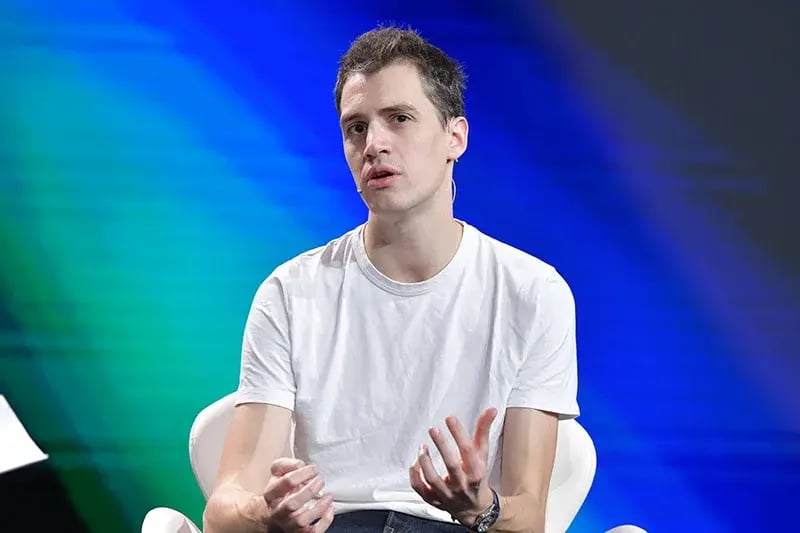
2025 Arthur Mensch Co-Founder & CEO, Mistral AI
CEO of Mistral AI, Arthur Mensch, took to the stage to discuss his company’s remarkable rise to global prominence and the next chapter in its roadmap.
Watch Arthur Mensch in keynote 7.
Covering geopolitics, AI personalisation for networks and as-yet-untapped opportunities, he went on to say, “Telcos have an opportunity to invest in data centres and become hyperscalers. We've seen this model work in different parts of the world. Setting up a data centre is not that different from setting up fibre to the home. We would welcome more efforts, more domestic efforts, in making data centres.”
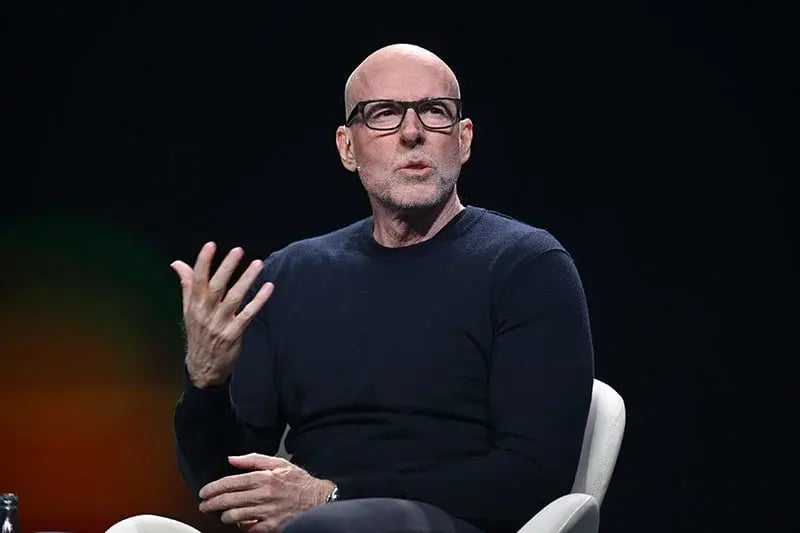
2025 Scott Galloway Entrepreneur, Author & Professor of Marketing, NYU Stern
A wide-ranging and provocative fireside chat between Nina Dos Santos and Scott Galloway, covered some of today’s most pressing cultural, social, and economic challenges. Travelling from politics to gender to tech regulation and everything in between, Galloway noted that the main threat of AI would come from loneliness and not its destructive power.
Watch Scott Galloway in discussion with Nina Dos Santos.
“I think a lot of the risks are actually overblown. I'm not a philosopher, but typically in every weapon, there's a kill switch. Someone might decide to kill all of us, but I don't think technology is going to make that decision on its own.”